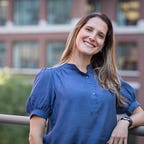Mastering Computation for Analytics in the MSDS Boot Camp: Insights from the Program Director
The Master of Science in Data Science (MSDS) is a rigorous one-year program that begins each year with an intense “boot camp” experience. This annual boot camp serves as the program’s launching point, and we are delighted to share that this summer, we have two of our esteemed female faculty members, Diane Woodbridge and Shan Wang, leading our boot camp courses: Computation for Analytics, EDA & Visualization, and Probability and Statistics. Today, Professor Woodbridge, the Program Director, will share details about the Computation for Analytics course. She will provide an overview of the course, discuss its main challenges, and offer insights on how to excel in it. Additionally, we will learn a bit about Professor Woodbridge’s background and discover her favorite weekend activity.
Q: Professor Woodbridge, tell us a bit more about your Computation for Analytics course.
A: Computation for Analytics comprehensively covers topics such as data types, operations, and object-oriented programming. Moreover, students will explore essential areas, including shell commands/scripts, version control (git), unit testing, PEP standards, and AWS EC2. The class follows a flipped teaching approach, providing pre-recorded lectures for students to watch and practice at their own pace. Additionally, two-hour discussion sessions are held on Monday and Friday to address topics that require further practice and clarification.
Q. What are the main challenges?
A: The class accommodates a diverse group of students with varying levels of programming experience. Some students may feel overwhelmed by the comprehensive nature of the course, as it covers not only fundamental concepts but also introduces topics they may not be familiar with, such as generators and decorators. Mastering all the subjects within the limited time frame could be a challenge for some students.
Q: How to succeed in this course?
A: Effective Time Management: Stay organized and stay ahead of assignments, lectures, and deadlines. Allocate consistent time to watch lectures, work on examples, and complete homework to meet the weekly requirements, including quizzes and assignments.
Actively Engage with the Material: Merely reading through example codes is not sufficient. Make a conscious effort to practice regularly and solve problems independently without relying heavily on references. Embrace coding as you would when learning a new language, dedicating daily practice to achieve fluency.
Develop Problem-Solving Skills: Proficiency in writing code is crucial for data scientists and engineers, but it’s equally important to develop problem-solving skills and logical thinking. These skills enable you to solve problems more efficiently and effectively.
Seek Help and Collaboration: Embrace the value of seeking help and advice whenever you encounter challenges. Engage proactively with instructors, volunteers, and your study group to foster meaningful discussions, exchange ideas, and share knowledge about the course concepts. Collaboration enhances the learning experience and promotes a supportive environment.
Originally born in California, Diane was raised in Seoul, South Korea. She completed her Computer Science and Engineering undergraduate studies at Sogang University, a Jesuit college. Following her undergraduate degree, she joined a Ph.D. program in Computer Science at UCLA, specializing in data processing and machine learning in IoT Health. After completing her doctoral studies, she joined Sandia National Laboratories as a Senior Member of the Technical Staff, where she had the privilege of working with exceptional engineers and scientists. During her time there, a memorable mentoring experience with a high school student inspired her to pursue a teaching and mentoring career to motivate and shape the next generation of computer/data scientists. She is thrilled to be at USF, where she finds joy and love in teaching, mentoring, and continuing her research.
Her favorite activity is to go camping with her family. They love to go to Bodega Bay and Clear Lake, both of which are conveniently close and beautiful.
